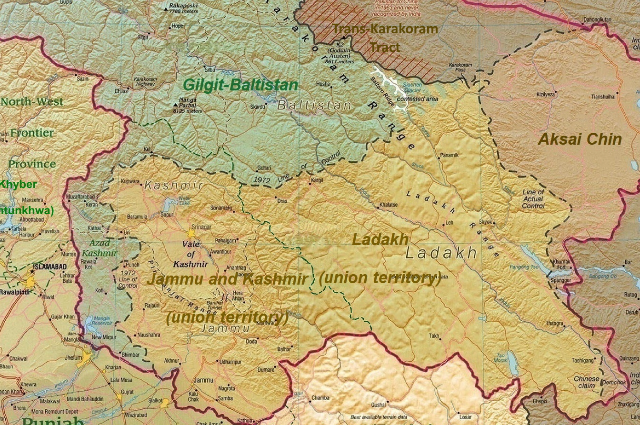THE constitution of India was made by the lawyers and diplomats who no doubt wanted to terminate British rule but not for the nation’s freedom and their own interests, for which the national freedom act was pulled upon. The father of our nation adopted our genius forefathers just so the land could be divided among his descendants, which led to many pacts between the brothers and their extended families(us). These pacts were majorly about the land boundaries and trade to ensure the brotherly bond lived long after.
Article 370 of the Constitution of India gave special status to Jammu and Kashmir (the most infamous border representing the brother’s bond), providing the state with its own individual identity i.e. being a state in the northern part of India, it still had its own flag, a separate constitution and autonomy of internal administration. The Indian government was just a fundraiser to the state. Period! The net effect on the state’s residents due to the law was similar to the prisoners in a jail.
The funds weren’t used in the development of the state but terrorism, the children didn’t had proper access to schools leading to more stone pelter’s and not educated youth, women faced a lot of difficulties in various aspects, the citizen’s of other Indian states were considered outsiders therefore couldn’t buy properties there- leading to lesser business and economic instability, crime rate always increased in various ways- stone pelting, mass resistance’s, armed insurgency, quasi-violence(semi-organized pressure by unarmed civilians to provoke, frustrate, and impose costs on the state), terrorists attacks which always maintained the atmosphere of fear around.
Article 370 was drafted in part 21 of the Indian constitution titled “Temporary, Transitional and Special provisions”. It stated that the constituent assembly of Jammu and Kashmir would be empowered to recommend the extent to which the Indian constitution would be applied to the state. The state assembly could also abrogate the Article 370. But, after the assembly was convened, it stated that the provision must apply due to which Presidential rule was applied to the state. Hence, the article became permanent for no practical reasons and love of brothers.
At that time India had Congress party in the majority which had been there since Jawaharlal Nehru was given the throne by the father of nation.
On 26 May 2014, Bhartiya Janta Party, led by Narendra Modi came in power. Before this time in most of the terrorists' attacks on Kashmir, the Indian soldiers were martyred but after this India saw a huge change for example, the reply to Pulwama attack-the surgical strikes and many more. While the terror was answered by soldier’s the internal mess and issues was answered by the abolishment of laws which hindered nation’s progress.
On 5 August 2019, the Government of India issued a Presidential Order suspending the 1954 order, and making all the provisions of Indian constitution applicable to Jammu and Kashmir. Further order on 6 August made all the clauses of Article 370 inoperative except clause 1. In addition, the Jammu and Kashmir reorganization Act,2019 was passed by the parliament, enacting the division of the state of Jammu and Kashmir into two union territories to be called Union Territory of Jammu and Kashmir and Union Territory of Ladakh.
On 25 August 2019, the Indian flag was hoisted in the state of Jammu and Kashmir, finally making the state subjects feel like themselves as proud citizens of India.
The revocation of Article 370 extends to a key provision added under it, known as Article 35A. This gives special privileges to the permanent residents, including state government jobs and the exclusive right to own property in Jammu and Kashmir. It is intended to protect the state’s distinct demographic character as the only Muslim majority state in India. Although many people and leaders find it discriminatory for the non-Muslims and general development of the state, it is been looked up.
Today, life in Kashmir is slowly and steadily limping towards normalcy. However, the Valley stands in the midst of an uneasy calm that may explode at the slightest provocation from across the border. But when compared to the previous conditions, opening of schools, development projects in the state, freedom to roam on the streets, the air to breathe without any tension of survival is a relief worth the risk.

